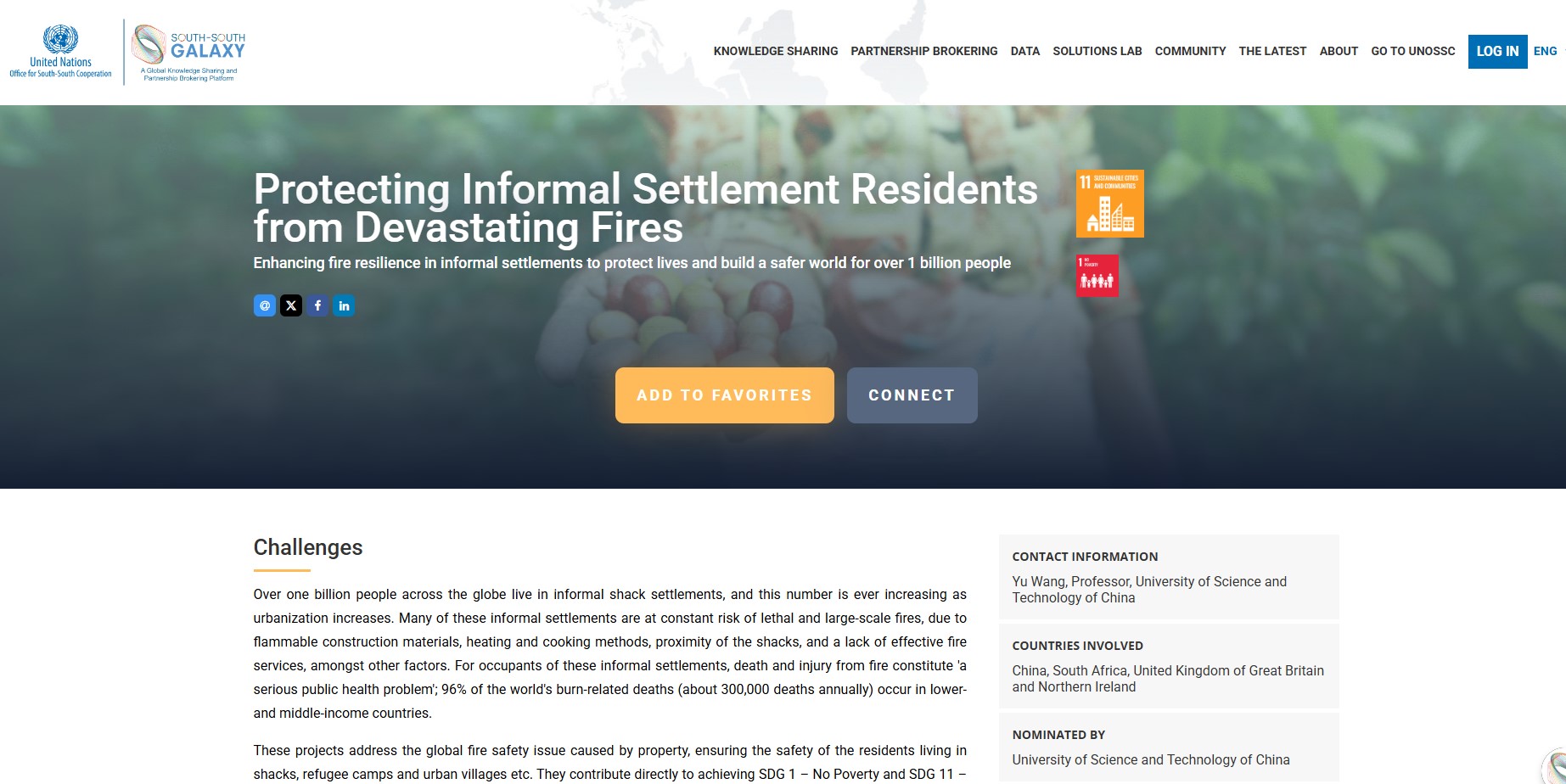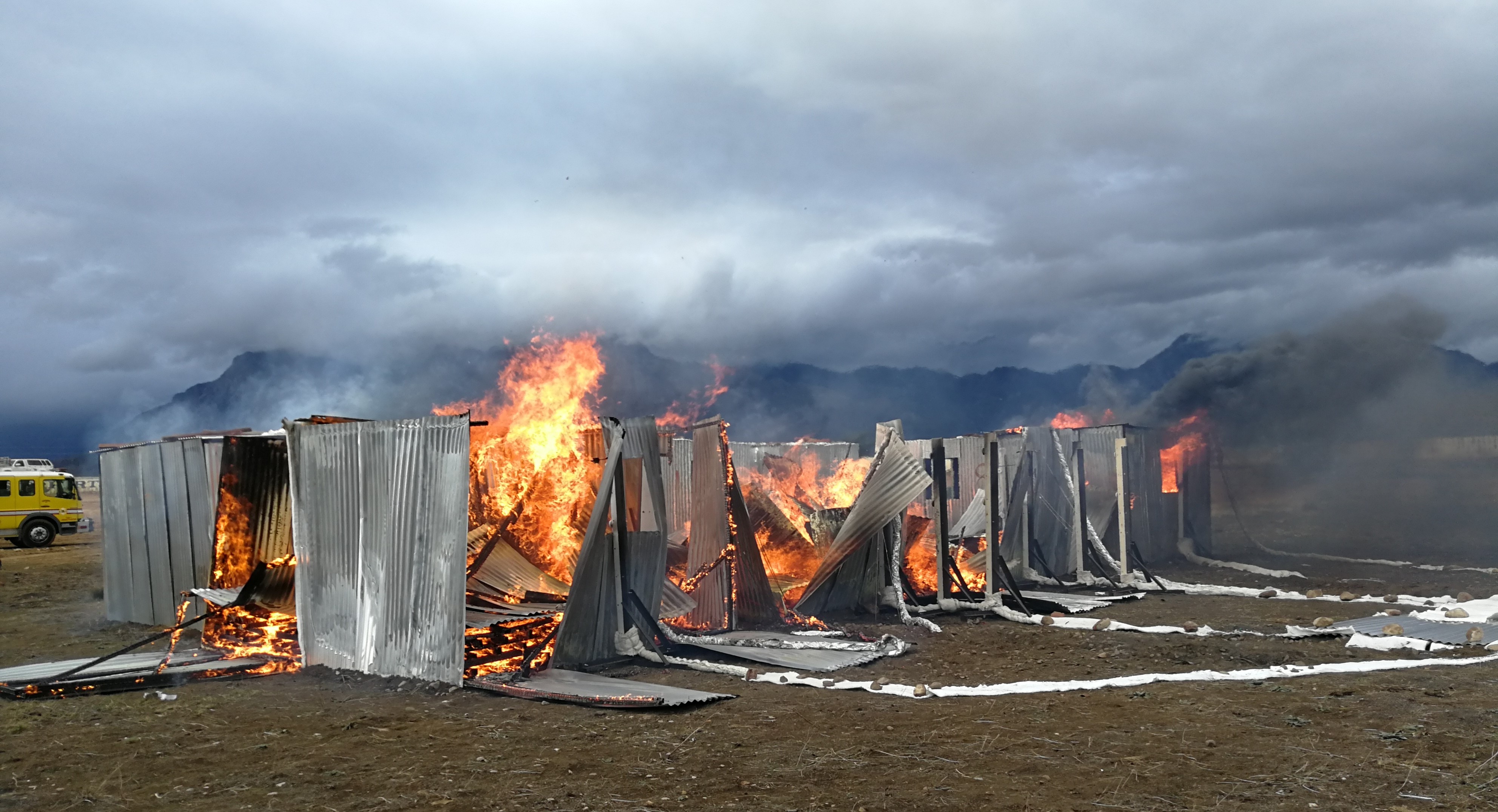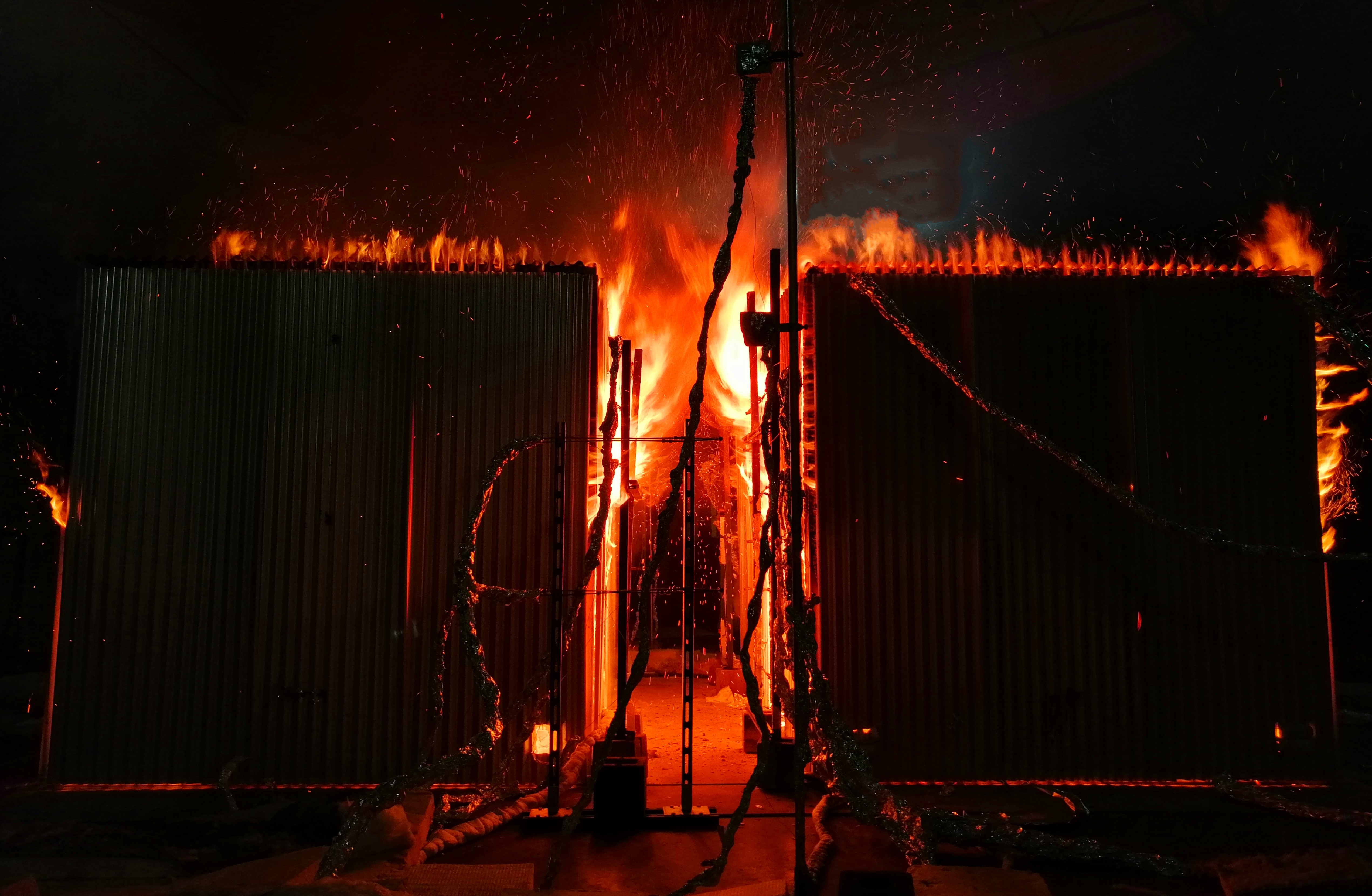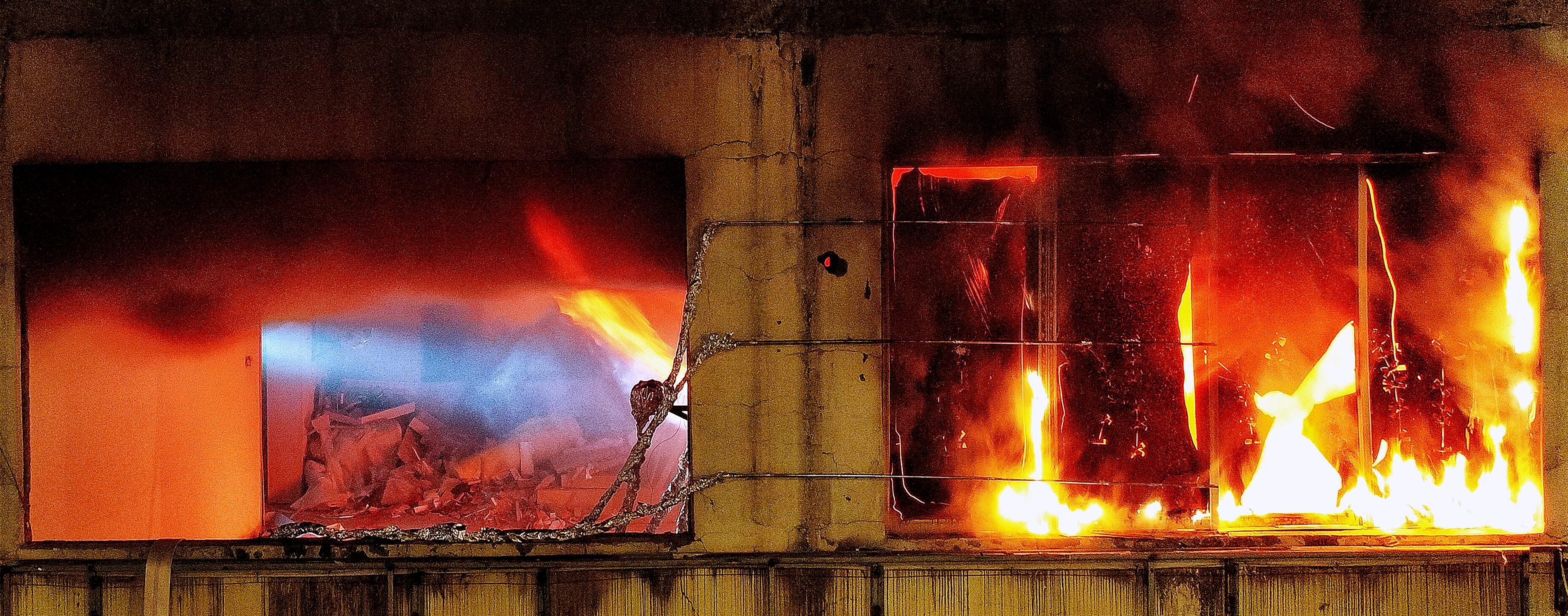| homepage News and Events News Releases |
| USTC research selected as a Good Practice by the United Nations Office for South-South Cooperation |
| Date: 2025-11-14 Author: SKLFS Source: SKLFS |
Recently, the fire safety resilience research on informal settlements (such as slums, refugee camps and urban villages, etc.) jointly conducted by the University of Science and Technology of China (USTC), University of Edinburgh (UK) and Stellenbosch University (South Africa) was selected by United Nations Office for South-South Cooperation (UNOSSC) as a Good Practice in South-South and Triangular Cooperation. This research was officially featured as a Solution on South-South Galaxy (UNOSSC’s global knowledge-sharing platform) on the 10th of November. UNOSSC presents Good Practices as great examples of South-South and triangular cooperation that showcase innovative, impactful, and scalable solutions, demonstrating collaborative efforts among countries of the Global South as well as supported through triangular cooperation involving traditional donors, multilateral organizations, and developed countries. This is the first Good Practice and Solution on the keyword of “Fire Safety” by the UNOSSC, and the first time our university's research results have been selected.
Good practice display on UNOSSC Due to the uneven economic development between the Global North and the South, about 1 billion people worldwide live in informal settlements with extremely high fire risk, and this number continues to grow as global urbanization accelerates. To effectively implement President Xi Jinping’s important remarks on building a community with a shared future for mankind and deepening South-South cooperation, Prof. Yu Wang of the State Key Laboratory of Fire Science at USTC, together with Dr. David Rush and Prof. Luke Bisby (Fellow of the Royal Academy of Engineering) from the University of Edinburgh, as well as Profs. Richard Walls and Lesley Gibson of Stellenbosch University in South Africa, have carried out long-term collaborative research on fire safety in informal settlements. Over the years, the team has conducted full-scale fire experiments, numerical simulations, and theoretical model development in South Africa, the United States, the United Kingdom, and China, achieving significant scientific outcomes and generating broad international impact. So far, the project’s key investigators have together published over 20 high-impact papers in internationally recognized journals in the fields of fire and thermal safety, and have also carried out on-site surveys and academic communications across South Africa, Kenya, Malaysia, Brazil, Japan, the United Kingdom, the United States, Canada, and Taiwan, China. The team has chaired informal settlement fire workshops at major international academic platforms, including the 14th International Symposium on Fire Safety Science (IAFSS) and the 12th Asia-Oceania Symposium on Fire Science and Technology (AOSFST). Their contributions have earned more than ten scientific awards from organizations such as the IAFSS, the Society of Fire Protection Engineers (SFPE), and the China Association for Public Safety (CAPS). The research outcomes have attracted ongoing attention and recognition from the United Nations and the World Bank (Urban FRAME). Prof. Yu Wang from our university and Dr. David Rush, Senior Lecturer at the University of Edinburgh, were jointly awarded the 2023 Chinese Academy of Sciences (CAS) International Partnership Award for Young Scientists, in recognition of their outstanding achievements in international collaboration and education related to fire safety in informal settlements.
Full-scale urban village fire experiment, Lai’an, Chuzhou, China (More than 50,000 audience online, reported by China Fire, etc.)
|
||
|
|
||
|
|
| Relevant link | ||
|
|
|
||||||||||
|
||||||||||



